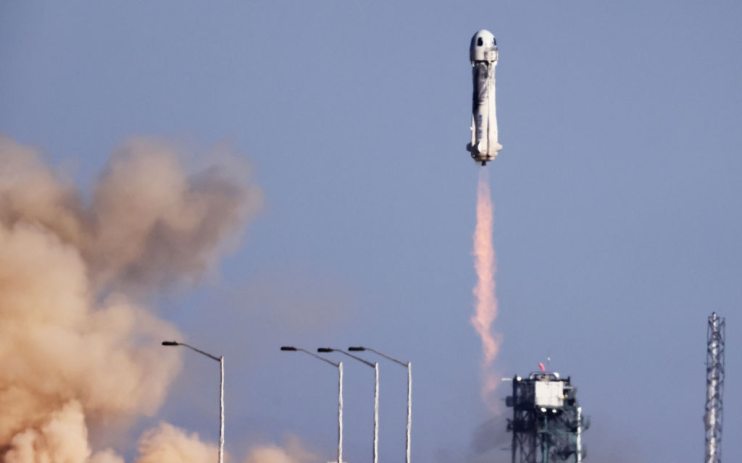Editorial: Here’s to the billionaires heading for the final frontier

So it’s beam me up, Bezos, as Captain Kirk almost said. Yesterday William Shatner became the oldest man to see space, sent off to near-orbit by Amazon’s Jeff on Blue Origin.
To some, the competition between Jeff Bezos, Elon Musk, Richard Branson and no doubt other soon-to-emerge billionaires is a sign of the worst of capitalist excess. Sending Shatner to orbit will look nothing more than a poorly-timed PR stunt.
But, but, but. The space race is a lot more than a rocket-measuring contest between some of the world’s richest men. It’s a competition – and one that will make us all better off.
Innovation, even for innovation’s sake, is a worthwhile (USS) enterprise.
One wonders if the naysayers today would have been so down on John F. Kennedy pronouncing that the country must go to the moon by the end of the decade, itself a response to the Soviet Union’s atmospheric efforts.
That ambition unleashed a raft of technological advances, some foreseen, and some not. The fact that you could read this column on your mobile (if you so chose) is a result of the innovations unleashed by a great power struggle. Those critics, by the way, included former President Eisenhower: Ike said the whole idea was “nuts”.
We do not yet know what the end result of the great billionaire struggle will be. It could be near-orbit passenger aviation, drastically cutting flight times, or perhaps it could be improving satellite coverage in the remotest parts of the globe. The possibilities, like the universe, are endless.
So here’s to the billionaires, the dreamers, the innovators.
And perhaps those left-leaning climate activists bemoaning this apparent waste of money (and fuel) could remember one thing: almost all of those who have come back down from space have become passionate spokespeople for the environment and its protection. Innovation can have unforeseen, and positive, consequences.
Read more: Editorial: If the PM returns with a plan, it’s a worthwhile holiday
